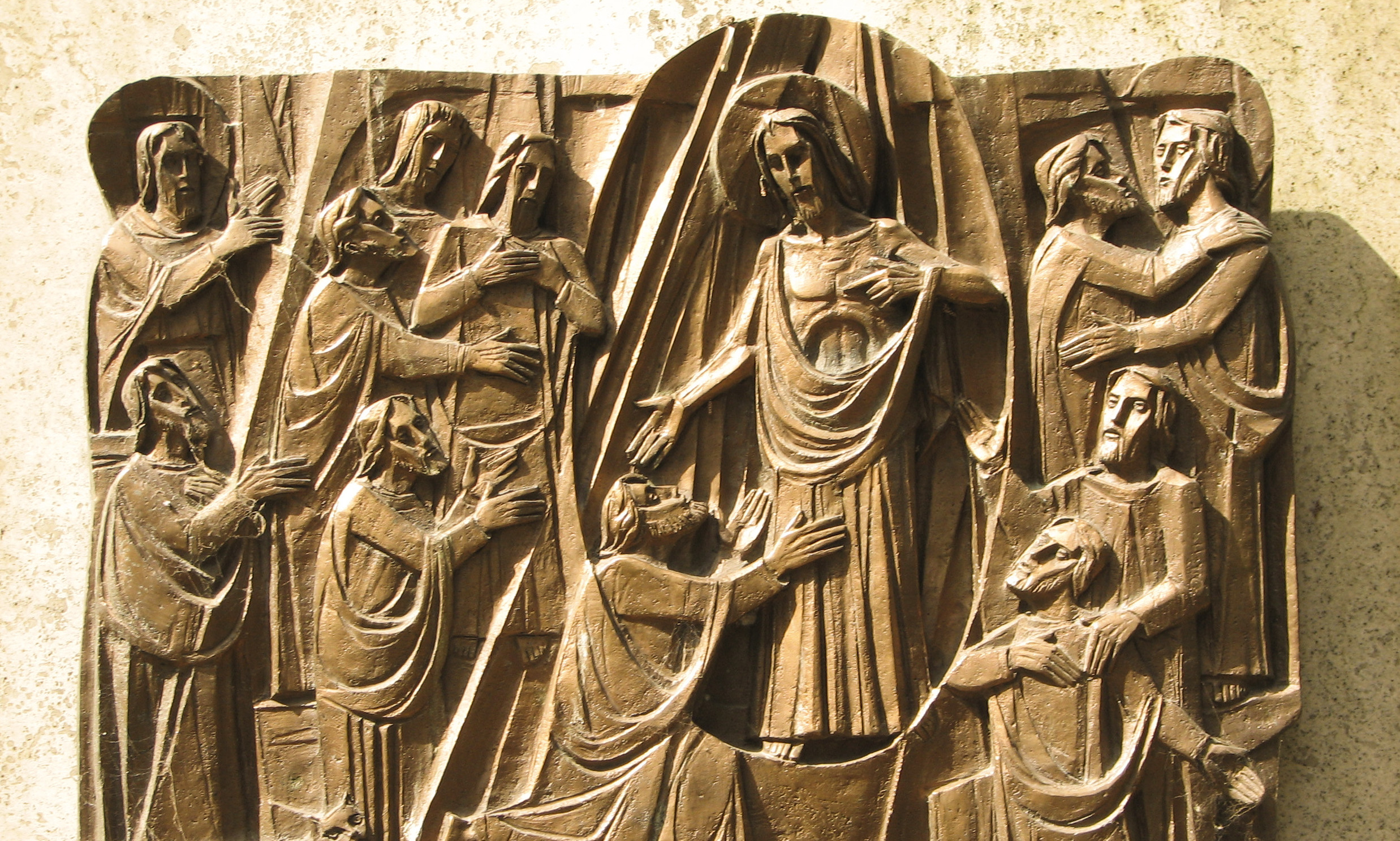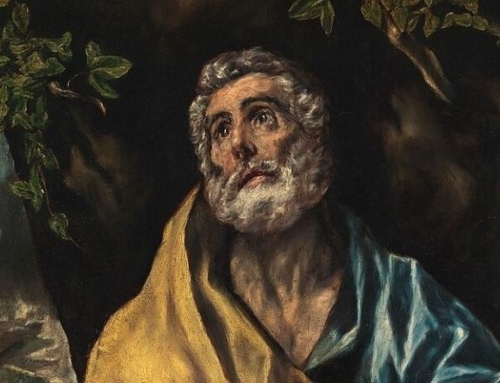Today the Church continues to reflect on how Peter and his brother apostles preach the Holy Name of Jesus. Before the Sanhedrin they boldly proclaim the kerygma,
The God of our fathers raised Jesus, though you had him killed by hanging him on a tree. God exalted him at his right hand as a leader and savior to grant Israel repentance and forgiveness of sins. We are witnesses of these things, as is the Holy Spirit whom God has given to those who obey him. (Acts 5:29-32)
This is the kernel of God’s saving Truth. Let us meditate on one aspect of it that may not be immediately apparent: the role of the Holy Spirit in the forgiveness of our sins. We rightly associate God’s mercy and the forgiveness of sins first with the Father, taking our cue from the parable of the prodigal son. It is also easy to recognize Jesus as the “Face of the Father’s Mercy,” since in the Gospels we see him explicitly forgiving sinners (the paralytic and the adulteress, for example) and because He was incarnate, suffered, died and rose from the dead expressly for the forgiveness of our sins. Now, where does that leave the Holy Spirit? The Scripture readings from this week’s liturgies give us two insights.
First, the Holy Spirit teaches us we are sinners in need of forgiveness. In the passage quoted above, St. Peter calls the Spirit a witness to our redemption wrought by the Father through His Son, Jesus Christ. But what is this witness of the Spirit? It is not a visible manifestation like the Incarnation nor is it a divine apologetic argument for the Truth of Christ. Rather, it is something simple, intimate and profound. God sends His Holy Spirit to touch and so inflame the hearts of those who hear His Word with the desire to believe in Him. Thus the Holy Spirit is the source of our faith. St. John the Evangelist ties the Holy Spirit’s work in particular with our faith regarding the realities of sin and divine mercy. Recall the words Jesus spoke in the Last Supper about the Counselor He was to send:
When the Counselor comes, whom I shall send to you from the Father, even the Spirit of truth, who proceeds from the Father, he will bear witness to me… And when he comes, he will convince the world concerning sin and righteousness and judgment… When the Spirit of truth comes, he will guide you into all the truth. (John 15:26; 16:8, 13)
Jesus’s Spirit makes us understand we are sinners. He does this by enlightening for us the mystery of Christ, who is God’s righteousness and our Judge. When moved by the Spirit, we believe in the Crucified Jesus and we see in Him the effects of our sins—only then can we be contrite. Sorrowful and penitent, we are inspired to seek forgiveness.
In the Gospel from Divine Mercy Sunday we read how Jesus answers our plea. The Risen Christ visited His disciples and offered them His peace. He showed them His wounds, precious signs of His forgiveness. Then Jesus breathed on his apostles and told them “Receive the Holy Spirit. Whose sins you forgive are forgiven them, and whose sins you retain are retained” (John 20:22-23). Through those words and gestures Jesus gave us the Sacrament of Reconciliation. In this sacrament, Jesus opens His side for us to enter into the burning furnace of charity. We confess our unbelief, despair, pride, and other sins. Then Jesus forgives us through the ministry of his priest. And, once cleansed, our hearts are flooded with the inestimable Gift of His Spirit, Who in Christ restores us to Our Merciful Father.
✠
Image: Fr. Lawrence Lew, O.P., The Risen Lord appears to St Thomas & the apostles (detail) – used with permission







